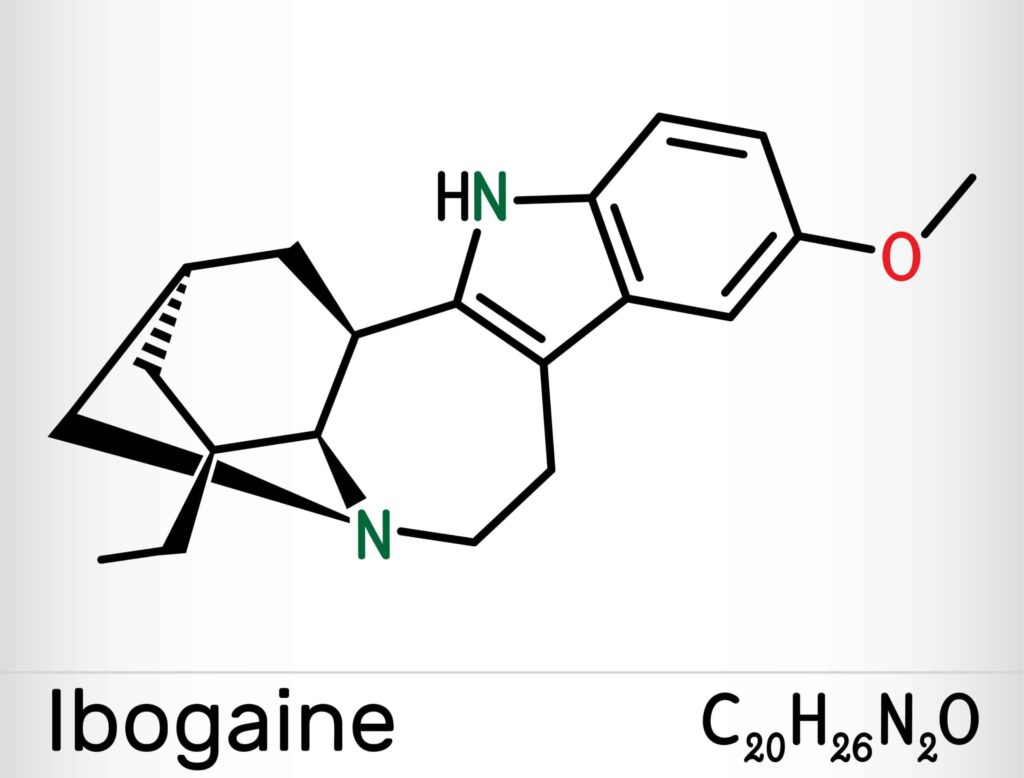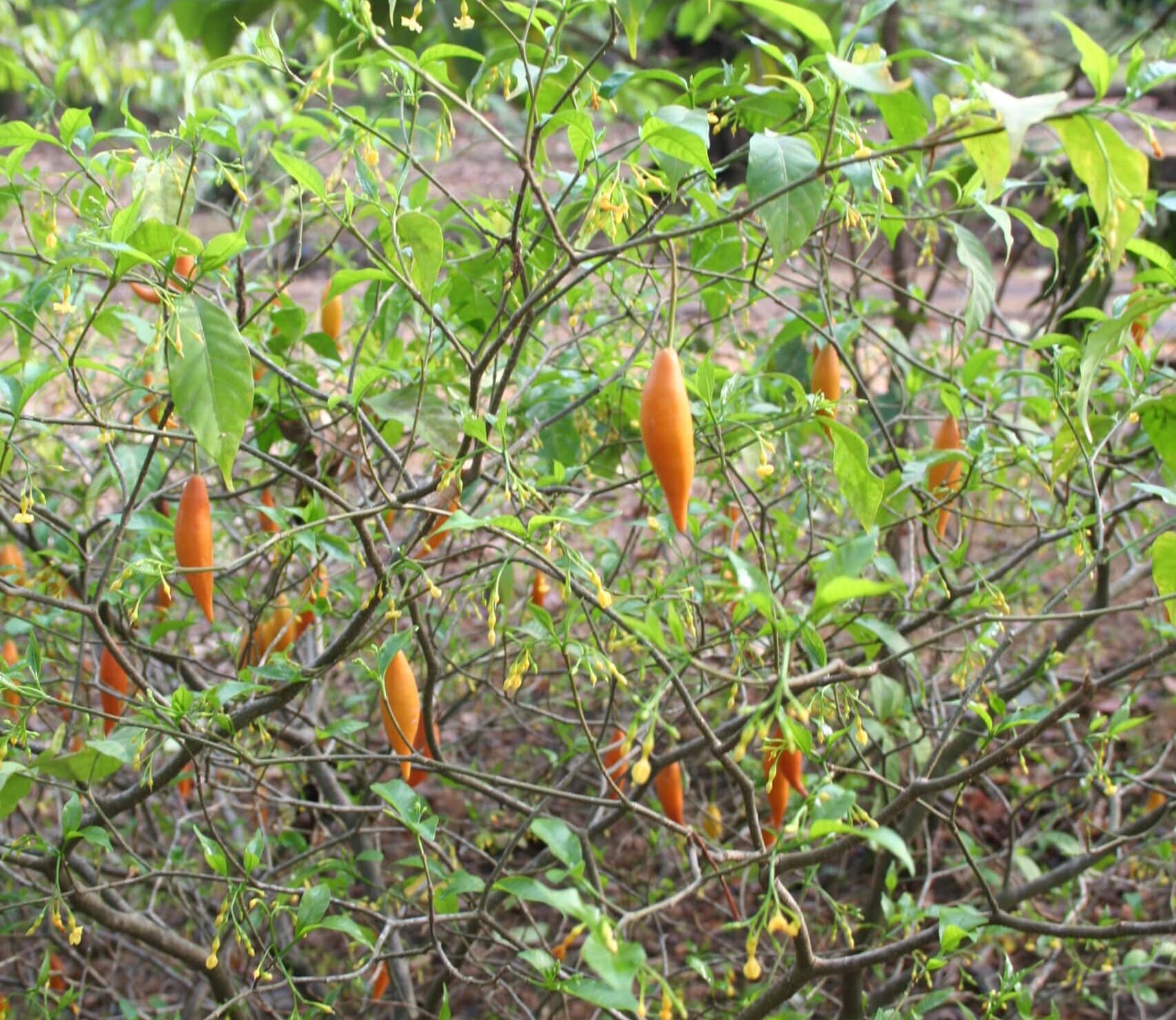Many people think that iboga and ibogaine are the same thing. Though related, these substances are quite different from one another in their chemical structure, effects, legality, and use. Understanding the difference can empower people to make informed decisions about how to use these substances for healing.
What Are The Differences Between Ibogaine & Iboga?
Iboga is a natural plant that is native to West Africa and traditionally used in medicinal as well as spiritual practices. Ibogaine is a single alkaloid derived from the iboga plant, primarily administered in a clinical setting, especially for the treatment of addiction. Here are the key differences between these two substances.
Source
Iboga is derived from the root bark of the Tabernanthe iboga shrub, which is grown widely in Gabon and Cameroon. Iboga contains hundreds of alkaloids. Many indigenous communities consume the root bark during rituals and healing ceremonies in its raw or powdered form. On the other hand, ibogaine is chemically extracted from the iboga root and contains only one alkaloid.
Chemical Composition
Iboga contains multiple psychoactive alkaloids but is best known for its ibogaine content. Alternatively, ibogaine is a purified, single-compound drug since only one alkaloid from the iboga plant is pharmaceutically extracted to create ibogaine. This makes it more applicable for settings that require a controlled dosage and precise usage, such as a medical environment.

Psychoactive Properties
Since it contains multiple alkaloids, iboga typically results in a more intense and longer-lasting experience. Iboga was commonly used in ceremonies that focused on more spiritually immersive experiences. On the contrary, ibogaine is a drug that has a more therapeutic and focused effect when administered in a clinical setting. Many patients report fewer hallucinations with ibogaine and a more introspective experience, especially when it’s paired with a structured detox protocol.
Uses and Applications
Iboga is traditionally used for spiritual development, healing, and community rituals. Its applications are primarily cultural and personal. In contrast, ibogaine is sought for its therapeutic properties and its ability to treat substance dependency. Clinics providing ibogaine treatment have helped thousands of people looking for relief from addiction, depression, PTSD, and chronic pain. Although ibogaine shows promising results as a treatment, it is not a cure, and it needs to be accompanied by therapy and support in the post-treatment phase of the procedure. Integration support and strategies support patients in making long-term lifestyle changes after their treatment.
Legal Status
The legal status of iboga and ibogaine varies based on several factors. In some African countries where iboga is historically used, it’s legal or unregulated. Likewise, ibogaine is allowed as a controlled substance with a doctor’s prescription in countries such as Australia, Finland, New Zealand, Uruguay, Brazil, Canada, Denmark, Hungary, and South Africa. Conversely, ibogaine is banned in nations like the United States because the FDA has not approved it. Ibogaine therapy isn’t legal in the U.S., but it can be accessed in neighboring countries such as Mexico, where it is in an unscheduled grey area. These treatments are practiced in a safe environment under licensed medical supervision. Treatment Centers outside the U.S., such as Experience Ibogaine in Mexico, are able to provide access to the administration of ibogaine treatment for qualifying individuals.
Safety and Risks
Both iboga and ibogaine can cause serious side effects, and neither should ever be self-administered. The full alkaloid profile of iboga can be unpredictable and physically taxing. Although more controlled, ibogaine still poses risks, such as cardiac complications, especially for anyone with underlying heart or liver issues. In treatment facilities such as ours, comprehensive medical tests are done ahead of time to make sure that treatment is safe. Patients fast before treatment to minimize nausea, and administration is closely monitored with emergency equipment on standby.
Key Takeaways
Although iboga and ibogaine originate from the same plant, they have different uses, effects, and risks. Overall, ibogaine provides a safer, medically supervised, and controlled treatment pathway that can treat addiction and mental health conditions. Iboga provides a more raw, primitive, and culturally rooted experience. No matter which one you choose, safety must be your first priority. Professional guidance and post-treatment care should also be non-negotiable when considering these powerful substances.
Frequently Asked Questions (FAQs)
Iboga is legal or unregulated in some African countries, but it is mostly restricted outside the continent. It is illegal in the US.
Both iboga and ibogaine have their own distinct characteristics and uses. Which is better depends on your goals. Iboga might be more suitable for traditional, spiritual uses, while ibogaine is commonly used during clinical treatments for addiction recovery, brain injuries, PTSD, depression, and anxiety.
Ibogaine is legal to possess in any quantity in Mexico, where it is an unscheduled substance. Experience Ibogaine in Mexico is a long-standing treatment center that has been providing access to ibogaine therapy under medical supervision for well over a decade.




